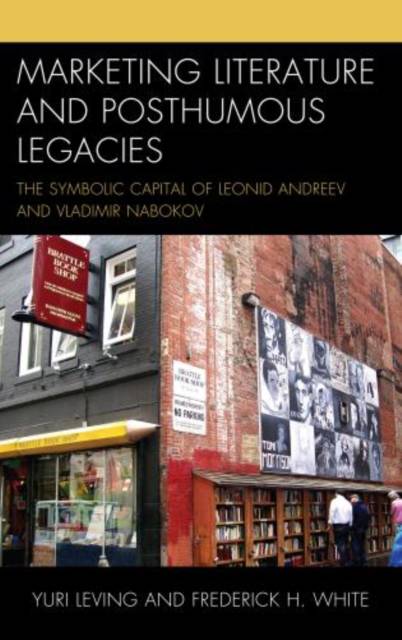
- Afhalen na 1 uur in een winkel met voorraad
- Gratis thuislevering in België vanaf € 30
- Ruim aanbod met 7 miljoen producten
- Afhalen na 1 uur in een winkel met voorraad
- Gratis thuislevering in België vanaf € 30
- Ruim aanbod met 7 miljoen producten
Zoeken
Marketing Literature and Posthumous Legacies
The Symbolic Capital of Leonid Andreev and Vladimir Nabokov
Yuri Leving, Frederick H White
Hardcover | Engels
€ 254,45
+ 508 punten
Omschrijving
Literature is not only about aesthetics, but also almost equally about the successful marketing of an author and his literary works. Ever since the two great Russian authors, Leonid Andreev and Vladimir Nabokov, created their own literary capital, cultural merchants have been preoccupied with the promotion of their respective posthumous legacies, maintaining the intricate network of personal interests that drive the preservation of literary reputations.
Specificaties
Betrokkenen
- Auteur(s):
- Uitgeverij:
Inhoud
- Aantal bladzijden:
- 294
- Taal:
- Engels
Eigenschappen
- Productcode (EAN):
- 9780739182604
- Verschijningsdatum:
- 12/09/2013
- Uitvoering:
- Hardcover
- Formaat:
- Genaaid
- Afmetingen:
- 157 mm x 231 mm
- Gewicht:
- 612 g

Alleen bij Standaard Boekhandel
+ 508 punten op je klantenkaart van Standaard Boekhandel
Beoordelingen
We publiceren alleen reviews die voldoen aan de voorwaarden voor reviews. Bekijk onze voorwaarden voor reviews.








